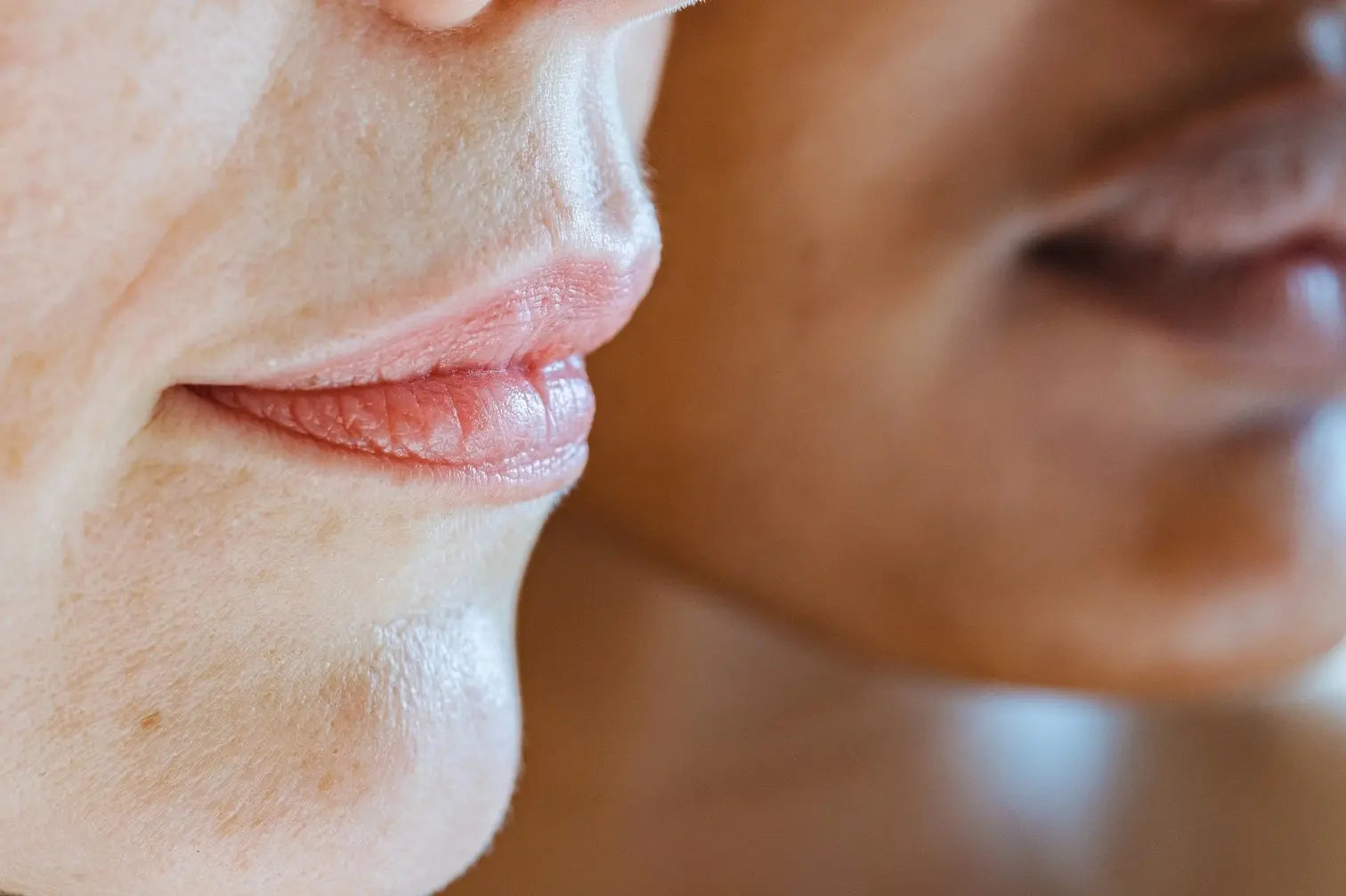If you’re approaching or experiencing menopause, you might be feeling a bit concerned about the changes in your skin. You may have even begun to experience some subtle (or not-so-subtle) shifts in the texture and tone of your skin.
So what's going on, and what can you expect?
The production of collagen, the protein that keeps your skin firm and hydrated, is closely tied to the levels of hormones like estrogen that decrease with menopause. Luckily, understanding how the collagen in your skin changes with menopause can help you take proactive steps to supplement your body’s collagen production and keep your skin looking and feeling its best.
Why is Collagen So Important For Healthy Skin Aging?
Collagen is the most abundant protein in your body, with each of the 28 different types serving various functionalities throughout the body. When it comes to skin health and appearance, type I and type III are the most important.[1]
Collagen and Skin Aging
How Do Perimenopause and Menopause Impact Collagen Levels?
How Can Post-Menopausal Women Supplement Collagen Production?
Stay Active
Professional Treatments
Oral Supplementation
- Vitamin C-rich foods: Citrus fruits, leafy greens, and berries are high in vitamin C, a vitamin essential for collagen biosynthesis that helps stabilize collagen molecules.[9]
- Lean proteins: Foods like fish, chicken, and eggs provide amino acids like proline and lysine, which are fundamental to collagen production and aid in skin structure and strength.[9]
- Nuts and seeds: These foods are excellent sources of amino acids and minerals like zinc that are precursors to collagen and support collagen integrity and repair.[9]
- Antioxidant-rich foods: Berries, green tea, dark chocolate, and other foods containing antioxidants help protect existing collagen from oxidative stress that can compromise skin firmness and elasticity.[9]
Topical Application

- Menopause accelerates natural collagen loss, increasing skin aging signs like wrinkles and sagging.
- Types I and III collagen, essential to skin elasticity and hydration, are particularly impacted during menopause.
- Regular exercise helps reduce inflammatory markers and supports collagen production, improving skin firmness.
- In-office treatments like laser therapy and microneedling can help boost collagen by stimulating the body’s natural healing response.
- Taking collagen supplements can help, but its effects are limited as only a fraction of ingested nutrients reach skin cells to support collagen production.
- Peptide-based products, like those powered by OneSkin’s OS-01 peptide, can stimulate collagen in the skin, restoring firmness and elasticity.
- https://www.ncbi.nlm.nih.gov/books/NBK507709/
- https://www.ncbi.nlm.nih.gov/pmc/articles/PMC3003457/
- https://www.ncbi.nlm.nih.gov/pmc/articles/PMC3583892/
- https://www.oaepublish.com/articles/2347-9264.2020.153
- https://www.ncbi.nlm.nih.gov/pmc/articles/PMC3772914/
- https://www.ncbi.nlm.nih.gov/pmc/articles/PMC10290068/
- https://www.ncbi.nlm.nih.gov/pmc/articles/PMC4976400/
- https://www.ncbi.nlm.nih.gov/pmc/articles/PMC6835901/
- https://www.ncbi.nlm.nih.gov/pmc/articles/PMC7146365/
- https://www.ncbi.nlm.nih.gov/pmc/articles/PMC9122277/
- Zonari, A., et al. Senotherapeutic peptide treatment reduces biological age and senescence burden in human skin models. Npj Aging, 9(1), 1-15. 2023.
- Zonari A., et al. Double-blind, vehicle-controlled clinical investigation of peptide OS-01 for skin rejuvenation. J Cosmet Dermatol. 2024.
- Based on data from clinical studies and/or lab studies conducted on human skin samples, 3D skin models, and skin cells in the OneSkin lab. Explore more at oneskin.co/claims


